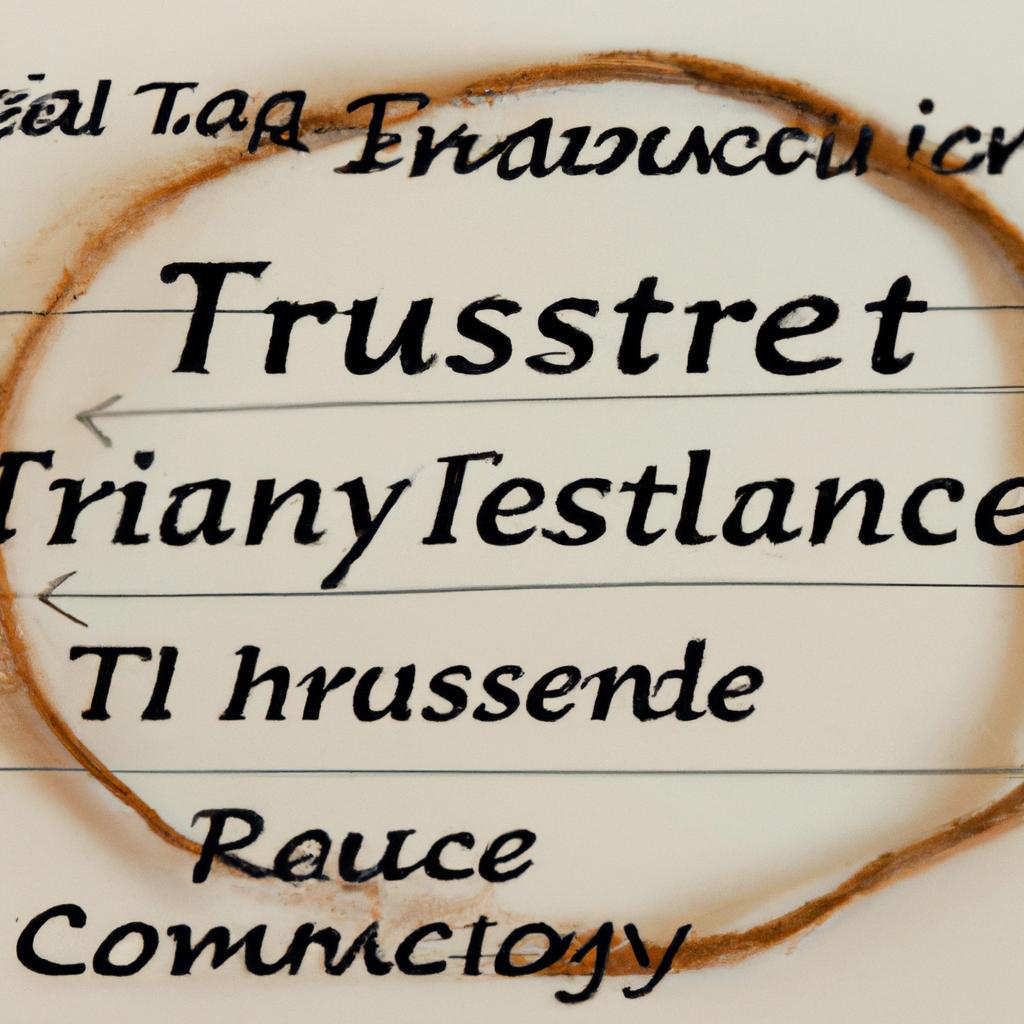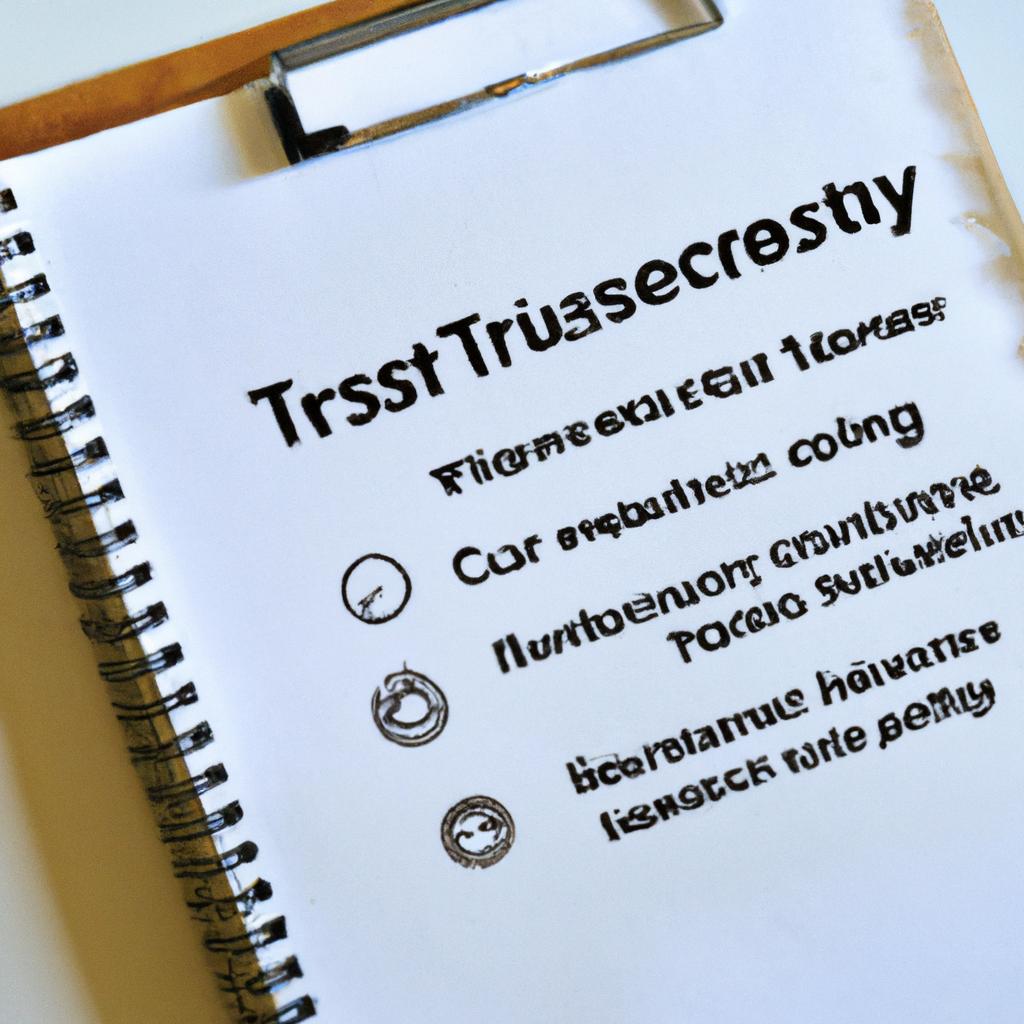Navigating the complex realm of estate planning can be a daunting task, especially when considering the financial implications of setting up a trust. As experienced lawyers at Morgan Legal Group in New York City, we understand the importance of providing clarity and transparency when it comes to the cost of establishing a trust. In this article, we will delve into the various factors that can impact the cost of a trust and provide insights to help you make informed decisions for your future.
Understanding the Various Factors Impacting the Cost of Establishing a Trust
When it comes to establishing a trust, there are various factors that can impact the overall cost of the process. Understanding these factors is essential in order to properly plan and budget for the establishment of a trust. Some of the key factors that can impact the cost of establishing a trust include:
- Type of Trust: The type of trust you choose to establish will greatly impact the overall cost. Revocable trusts are typically less expensive to set up than irrevocable trusts.
- Complexity of the Trust: The complexity of the trust agreement and the assets involved can also impact the cost. Trusts with more assets or more specific instructions will generally cost more to establish.
- Legal Fees: Hiring an experienced attorney to help you draft the trust agreement will also add to the overall cost. However, having a lawyer guide you through the process can save you time and prevent costly mistakes down the line.
| Factor | Impact on Cost |
|---|---|
| Type of Trust | Revocable trusts are generally less expensive to set up |
| Complexity of the Trust | Trusts with more assets or instructions will cost more |
| Legal Fees | Hiring an attorney will add to the overall cost |

Evaluating the Benefits of Investing in a Trust for Long-term Financial Security
When considering the costs associated with setting up a trust for long-term financial security, it’s essential to understand the various factors that can impact the overall expenses. The cost of establishing a trust can vary depending on the complexity of the trust structure, the value of the assets being included in the trust, and the specific legal requirements in your state.
Some of the typical costs associated with setting up a trust include attorney fees, trustee fees, administrative costs, and potential taxes. Additionally, ongoing maintenance costs such as annual trustee fees, tax preparation fees, and legal fees for any modifications to the trust can also impact the total cost. To get a better idea of how much a trust may cost for your unique situation, it’s recommended to consult with an experienced estate planning attorney who can provide a personalized estimate based on your specific needs and circumstances.

Key Considerations When Selecting Trust Services to Ensure Optimal Cost-effectiveness
In selecting trust services, it is essential to carefully consider various factors to ensure optimal cost-effectiveness. One key consideration is the fee structure offered by the trust service provider. It is important to understand how fees are calculated and whether there are any hidden costs that may impact the overall cost of managing the trust.
Another important consideration is the level of customization and flexibility offered by the trust service provider. Trusts come in various forms and serve different purposes, so it is crucial to choose a service that can tailor the trust to meet your specific needs. Additionally, consider whether the trust service provider offers ongoing support and guidance, as this can impact the overall cost-effectiveness of the service. By carefully evaluating these key considerations, you can ensure that you select trust services that are both cost-effective and tailored to your unique requirements.
| Fee Structure | Level of Customization | Ongoing Support |
|---|---|---|
| Transparent fees | High degree of customization | Continual guidance |
| No hidden costs | Flexible trust options | Support throughout the trust |

Navigating the Legal Fees Associated with Trust Planning and Administration
When it comes to trust planning and administration, understanding the legal fees involved is crucial for individuals looking to protect and distribute their assets effectively. Trust costs can vary depending on the complexity of the trust, the assets involved, and the services required from legal professionals. It is essential to work with experienced trust attorneys who can provide transparent pricing structures and ensure that all legal fees are clearly explained to clients.
At Morgan Legal Group, our team of trust planning and administration experts is dedicated to helping clients navigate the complexities of estate planning. We offer competitive pricing for our trust services and are committed to providing personalized guidance every step of the way. Whether you need assistance setting up a trust, managing trust administration, or resolving trust-related disputes, our experienced attorneys are here to help you achieve your estate planning goals effectively.
Q&A
Q: How much does it typically cost to set up a trust?
A: The cost of setting up a trust can vary depending on the complexity of the trust, the assets involved, and the legal fees involved. On average, you can expect to pay anywhere from a few hundred to several thousand dollars to establish a trust.
Q: What are some factors that can affect the cost of a trust?
A: Factors that can affect the cost of a trust include the type of trust you choose, the size and complexity of your estate, and whether you hire an attorney to help you create the trust.
Q: Are there ongoing costs associated with maintaining a trust?
A: Yes, there may be ongoing costs associated with maintaining a trust, such as trustee fees, investment fees, and legal fees for any updates or changes to the trust.
Q: Is it possible to create a trust without spending a lot of money?
A: While setting up a trust can be costly, there are ways to minimize expenses, such as choosing a simpler trust structure, doing some of the work yourself, or seeking out low-cost legal services.
Q: What are some potential benefits of investing in a trust despite the costs?
A: Some potential benefits of investing in a trust include avoiding probate, protecting your assets from creditors, and ensuring that your wishes are carried out according to your specific instructions. Ultimately, the benefits may outweigh the costs for many individuals.
Closing Remarks
In conclusion, the cost of setting up a trust can vary depending on various factors such as the type of trust, the complexity of your estate, and the expertise of the attorney you hire. It’s important to carefully consider your options and seek out professional advice to ensure that you are making the best decision for your financial future. Remember, a trust can be a valuable tool in protecting and managing your assets for generations to come. Thank you for reading!
 Title: How Much Does a Trust Cost? A Comprehensive Guide
Title: How Much Does a Trust Cost? A Comprehensive Guide
When planning for the future, it’s crucial to have a solid financial plan in place. One way to ensure the protection of your assets and loved ones is by setting up a trust. But before establishing one, it’s essential to understand the cost associated with it.
Trusts are often seen as something only the wealthy can afford, but that’s not necessarily the case. The cost of a trust can vary depending on various factors, and it’s essential to consider all aspects before making a decision. In this article, we will explore the different types of trusts, their associated costs, and the benefits they offer.
Types of Trusts and Their Costs
1. Revocable Living Trusts
One of the most common types of trusts is a revocable living trust. This trust allows the grantor (the person creating the trust) to have control over their assets while they are alive. It also provides flexibility as the grantor can make changes or revoke the trust at any time.
The cost of establishing a revocable living trust can range from $1,000 to $3,000, depending on the complexity of the estate and the services of the attorney creating it. If you choose to use an online service or DIY trust kits, the cost can be significantly lower. However, it’s important to note that these options come with potential risks, and it’s always best to seek professional guidance.
2. Irrevocable Trusts
Irrevocable trusts are trusts that cannot be changed or revoked once they are established. They are often used for long-term planning, including estate planning and protecting assets from taxes and creditors.
The cost of an irrevocable trust can range from $3,000 to $10,000, depending on the complexity of the trust and the services of the attorney. In most cases, these trusts require ongoing maintenance and management, which can also add to the overall cost.
3. Charitable Trusts
Charitable trusts are a viable option for those looking to leave a lasting legacy while making a difference in their community. There are two main types of charitable trusts – charitable lead trusts and charitable remainder trusts.
Charitable lead trusts are used to donate to charities during the grantor’s lifetime, while charitable remainder trusts allow the grantor to receive income from the trust before the assets are donated to charity after their death.
The costs associated with charitable trusts can range from $2,000 to $10,000, depending on the type of trust and the services of the attorney.
4. Testamentary Trusts
Testamentary trusts are established through a person’s will and come into effect after their death. They are often used to provide for minor children or special needs individuals. The cost of setting up a testamentary trust will depend on the complexity of the estate and the services of the attorney.
Other Costs to Consider
Aside from the initial cost of setting up a trust, there are other expenses to consider, which can also vary depending on the type of trust.
1. Trustee Fees
A trustee is someone who manages the trust and ensures that the assets are being managed and distributed according to the trust’s provisions. Depending on the size of the trust and the trustee’s duties, their fees can vary. Some trustees may charge a flat fee, while others may charge a percentage of the trust’s assets.
2. Administrative Costs
Trusts require ongoing maintenance and management, which can incur additional costs such as legal and accounting fees. These fees can vary depending on the complexity of the trust and the services required.
3. Asset Transfer Costs
When setting up a trust, assets must be transferred into the trust. This may require legal assistance, and the cost will depend on the complexity of the trust and the size of the estate.
Benefits of a Trust
While the cost of setting up a trust may seem high, the benefits it offers can outweigh the initial expense. Some of the key benefits of a trust include:
1. Avoiding Probate
A trust can help avoid probate, which is a lengthy and often costly process of distributing assets after death. As trusts are not subject to probate, they provide a quicker and more efficient way to transfer assets to beneficiaries.
2. Protecting Assets
A trust can protect assets from creditors and lawsuits, ensuring that they are passed on to your heirs in a secure and timely manner.
3. Control and Flexibility
A trust allows the grantor to have control over their assets while they are alive and provide flexibility in making changes if needed.
Practical Tips for Setting Up a Trust
1. Seek Professional Guidance: When establishing a trust, it’s always best to seek professional guidance from an experienced attorney. They can help you understand the costs, benefits, and requirements of setting up a trust.
2. Consider Your Options: Research and compare various types of trusts to determine which one best suits your needs and financial situation.
3. Plan for Long-Term Expenses: Factor in potential ongoing fees, such as trustee fees and administrative costs, when considering the overall cost of a trust.
Case Study: The Cost of Not Having a Trust
A real-life example of the cost of not having a trust is the highly-publicized case of the late singer Prince. After his untimely death, his estate went through a lengthy and costly probate process as he did not have a will or trust in place. His estate also incurred substantial legal fees, and the final distribution of his assets is still ongoing.
First-Hand Experience
“I’ve had a revocable living trust for over ten years now, and it’s brought me peace of mind knowing that my assets are protected and will be passed down to my children according to my wishes. The initial cost was well worth the benefits it has provided.” – Maria, 59
In Conclusion
The cost of a trust can vary depending on the type of trust, the complexity of the estate, and ongoing fees involved. While it may seem expensive, a trust can offer many benefits, including avoiding probate and protecting your assets. It’s essential to consult with a professional and consider your options carefully to make an informed decision on setting up a trust.







